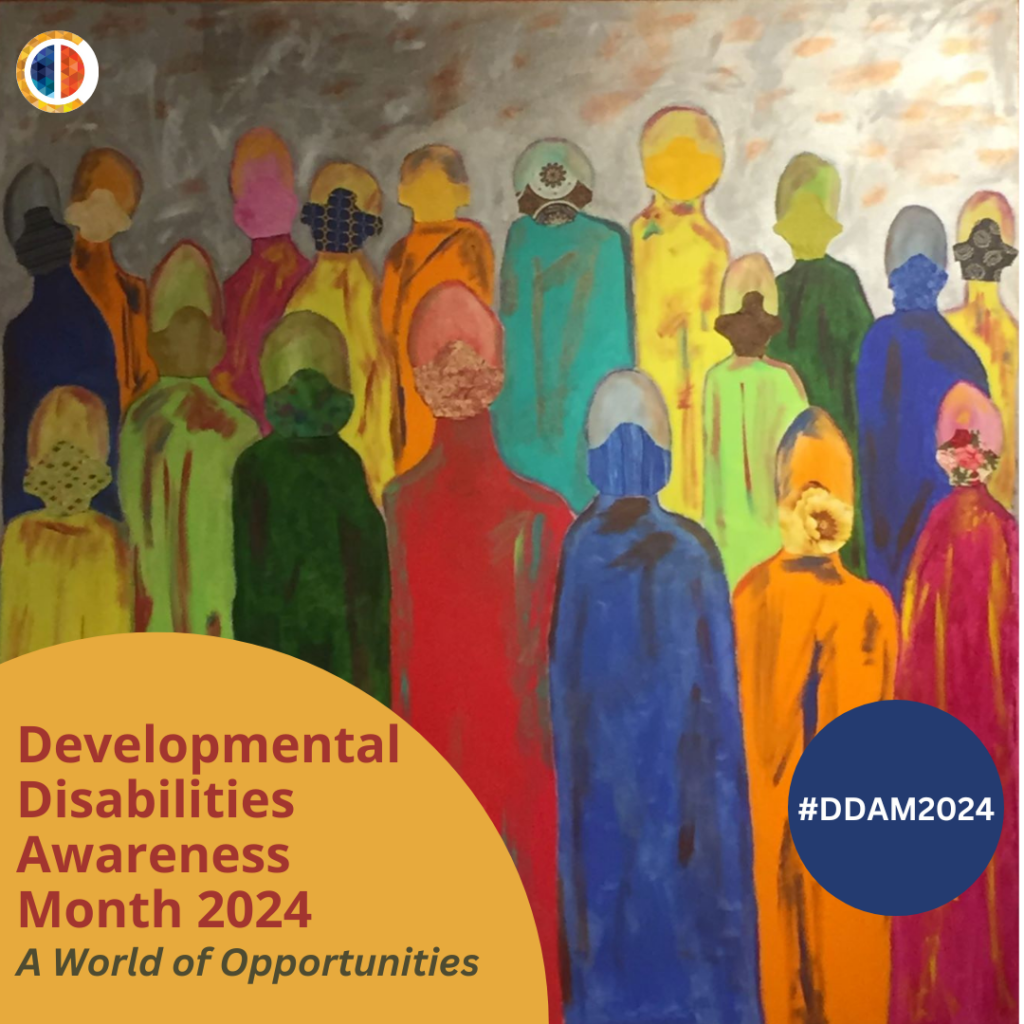Greetings, friends, and partners of Pierce County Human Services (PCHS),
Last month, March, was Developmental Disabilities Awareness Month. We recognized this designation with an all-staff “lunch and learn” where providers, clients, and PCHS staff shared information and insights about supporting or being individuals with developmental disabilities. Although the month of recognition has now passed, I want to share with you some of what I learned:
The Developmental Disabilities Act of 1984 established much of the system we have today. The Act set a goal to enable people with developmental disabilities “to achieve their maximum potential through increased independence, productivity, and integration into the community.” The Act also created State Developmental Disabilities Councils in all states and territories that provide training to individuals, families, and service delivery systems. In 1990, President Bush signed the Americans with Disabilities Act (ADA). The Act expanded from the 1984 goals of independence, integration, and productivity toward interdependence, inclusion, and recognition of individual contributions. Today, we acknowledge that abilities come in many forms.

While our family, friends, coworkers, and neighbors with developmental disabilities are facing the same struggles we all face, they often experience them more significantly:
- Education Challenges: The COVID-19 pandemic has significantly impacted individuals with disabilities. Disruptions in education, employment, health care, and social services have been amplified. Parents often took on full-time caregiving roles while also stepping into new roles as special educators, speech therapists, and behavior therapists. This has been exhausting and frustrating for many families.
- Social Isolation: Many people with intellectual/developmental disabilities rely on public transportation and supports to help them get to work and access community activities. Lack of transportation, providers, and inaccessible community programs directly impacts individuals’ opportunity to work, make friends and participate in the activities that they want.
- Health Inequities and Coexisting Conditions: Persons with disabilities have twice the risk of developing conditions such as depression, asthma, diabetes, stroke, obesity, or poor oral health. Accessibility barriers, negative attitudes, lack of assistive technology, and inadequate healthcare contribute to these inequities.
- Economic Challenges: Washingtonians with disabilities experience high rates of poverty compared to those without disabilities; approximately 19.5% of people with disabilities have incomes below 100% of the poverty level, and 43% fall below 200% of the poverty level.
- Housing Insecurity: More than 37,000 adults with intellectual and developmental disabilities (IDD) in Washington State face housing insecurity. This estimate includes adults living with elderly family caregivers aged 60+ and those living independently or with roommates.
- Limited Access to Post-High School Programs: Programs beyond high school for adults with developmental disabilities are scarce. Limited hours, a lack of providers, and difficulties in finding services pose barriers to accessing necessary support.

Evolution of the social model of disability highlights the importance of universal design. Building and promoting community spaces and programs that support access and engagement of people of all abilities significantly reduces the disproportionate impacts referenced above. We all benefit when we create opportunity for belonging! Considering the important and growing need for DD services in our community, we recently reorganized our staff to give them more prominence within our department. I’m proud to share that Malissa Adame has recently accepted the position of managing our newest division, the Developmental Disabilities (DD) Division. Malissa and her team will continue to provide comprehensive, quality services to our DD community, now with the additional attention and visibility this work deserves. FUN FACT: every member of our DD team has either directly provided the services we fund or has a family member who’s benefited from them; they know their stuff!
The Developmental Disabilities Division is responsible for local planning and administration of a variety of programs that support individuals with developmental delays or disabilities and their families across the life span. All of DD’s programs are designed to support full inclusion of individuals with developmental delays and disabilities in their local community. Direct services are provided by contracted providers. Services include Early Support for Infants and Toddlers (ESIT), Supported Employment, Community Inclusion, and Community Information and Outreach. In 2023:
- Our Employment and Community Inclusion Services provided Job Coaching and Retention support for 631 participants who worked in community-based employment settings earning minimum wage or higher.
- The department provided 188 individuals with Discovery, Assessment, Job Preparation and Job Development support as part of their pathway to employment, and 153 individuals received Community Inclusion services.
- The School-to-Work Program supported 72% of participating transition students to obtain a job.
- Our Early Support for Infants and Toddlers Program responded to 2,189 new referrals and provided developmental therapy and educational services to 2,805 infants and toddlers in their homes, childcare, or community- based settings.

Please check out our DD webpage for more information about the programs and community engagement opportunities; or check out one of these other sites to learn more:
- Developmental Disabilities | Pierce County, WA – Official Website (piercecountywa.gov)
- ‘Nothing about us without us’ act would require more representation on legislative task forces, workgroups | king5.com – Our DD Advisory Board Co-Chair, Ivanova, is featured in this story!
- Myths & Facts about Inclusionary Practices (ospi.k12.wa.us) – From our State Superintendent of Public Instruction
- Informing Families | Navigating the future – Information for families about DD programs and navigating them
- Birth to Three Growth and Development Checklist
Our vision for Pierce County citizens with developmental disabilities is the same as for all citizens: vibrant communities with happy, healthy people. We have more to do here, but we have a strong team and partners dedicated to that vision.
In partnership,

Heather
